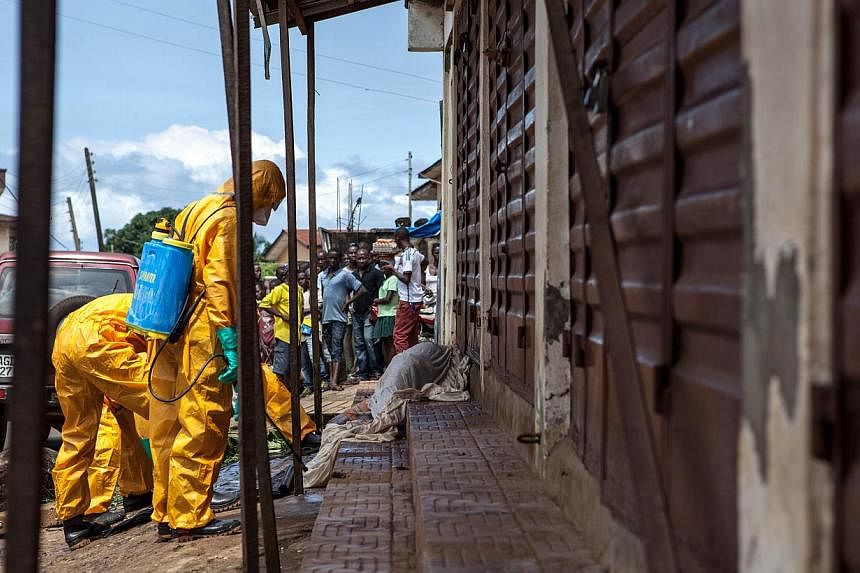1. How is the Ebola virus transmitted?
By coming into direct contact with the body fluids (e.g. blood, saliva, urine, or stools) of an infected person.
2. Can someone get it just by standing near an infected person or animal?
Ebola is not spread through the air, but it may be dangerous to stand near enough to receive the contaminated body fluid.
For example, within the distance of an infected person's vomit, urine, or respiratory secretions such as mucus.
According to the World Health Organisation, patients only become contagious once they start to show symptoms.
3. What precautions should be taken to prevent infection?
- Do not come into contact with an infected person without adequate protection.
- Avoid travelling to areas with active disease transmission. If in an affected area, avoid coming into contact with, handling, or consuming wildlife - for example, infected fruit bats or monkeys.
- Maintain good personal hygiene such as washing hands regularly and covering the nose and mouth while sneezing or coughing.
- If in doubt, seek early treatment.
4. Is Ebola likely to arrive in Singapore, given that it is a global air travel hub?
Singapore is currently a low risk because of low population movement between Singapore and affected West African countries.
However, the situation needs to be monitored closely, paying attention to the potential global transmission.
5. If an infected person arrives in Singapore, is Ebola likely to spread here, given the isolation facilities in place?
Singapore is taking a multi-pronged approach which includes:
- Sustaining alertness and awareness of the global situation
- Continuing assessment of the local risk
- Communicating with all relevant parties
- Taking effective measures to protect against importation of cases
- Carrying out enhanced surveillance to detect and isolate suspect or real cases, and to quarantine and monitor those exposed
- Enhancing protection for healthcare workers who look after infected cases
Information provided by Professor Leo Yee Sin, director of the Institute of Infectious Diseases and Epidemiology, Tan Tock Seng Hospital



